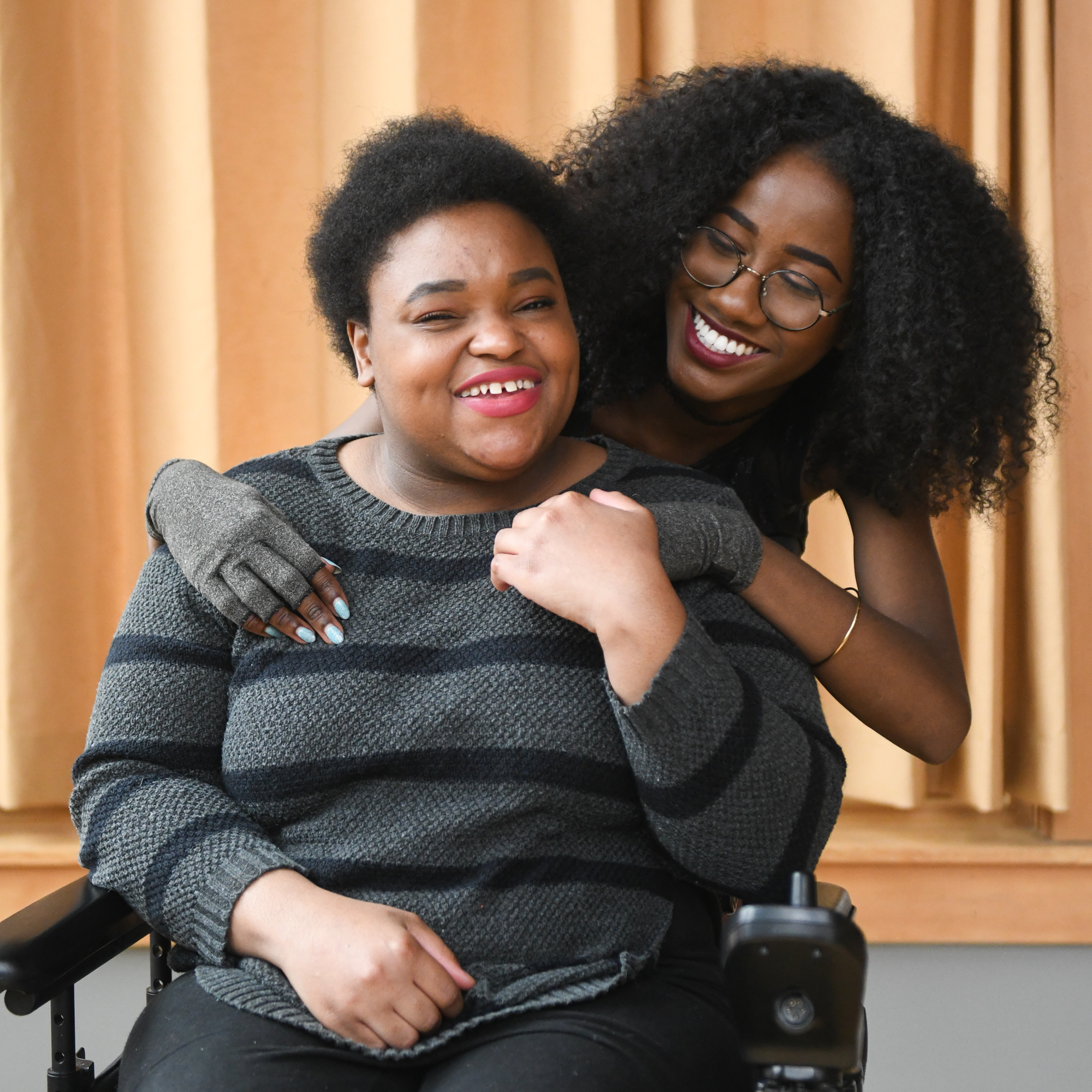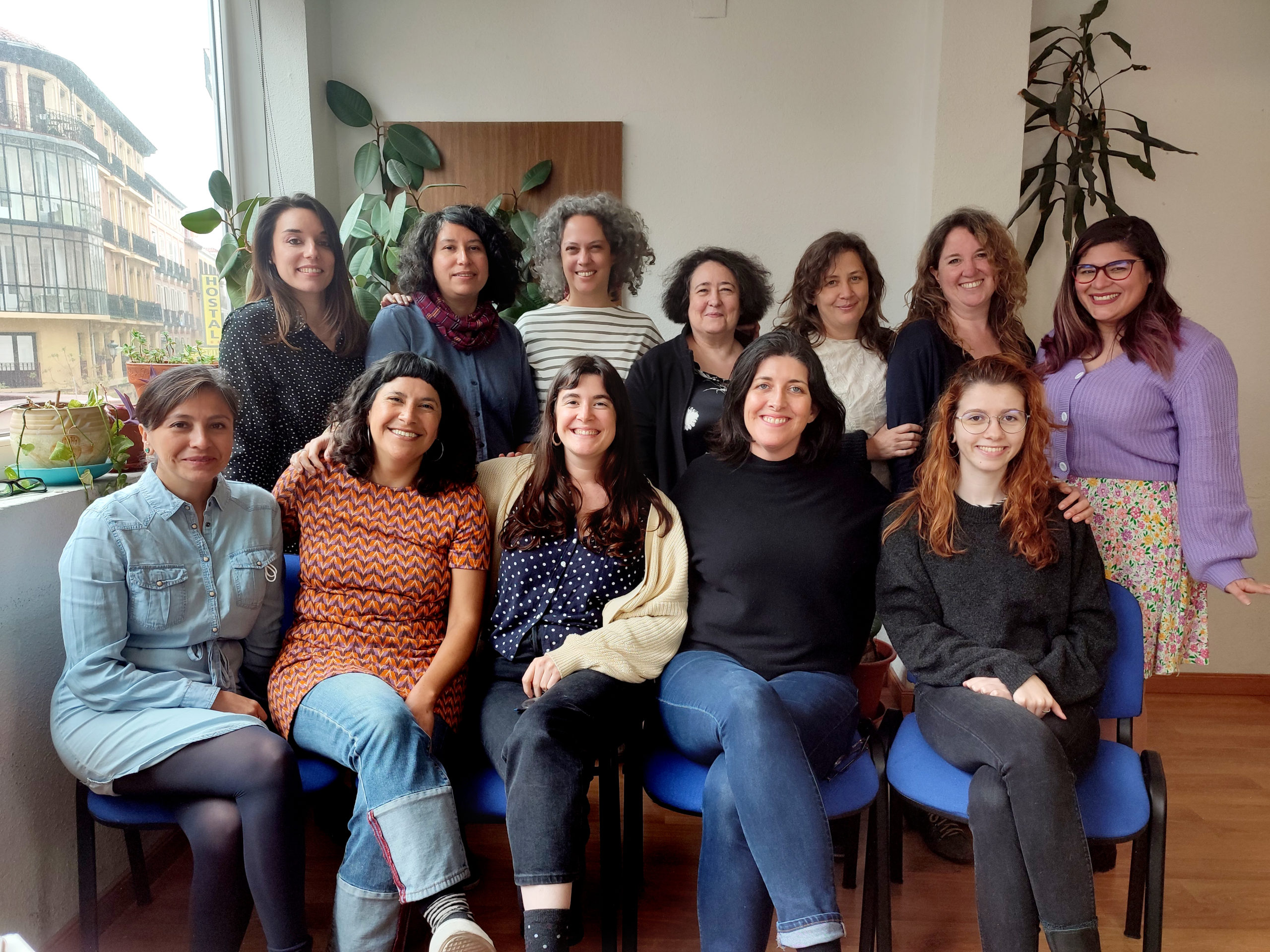
meet hrfn’s advisory council who are guiding our analysis on racial and ethnic justice from a global perspective.
Stay involved & Join our Communities of Practice here.
Learn about our Racial Justice Priority Area here.
Beena J Pallical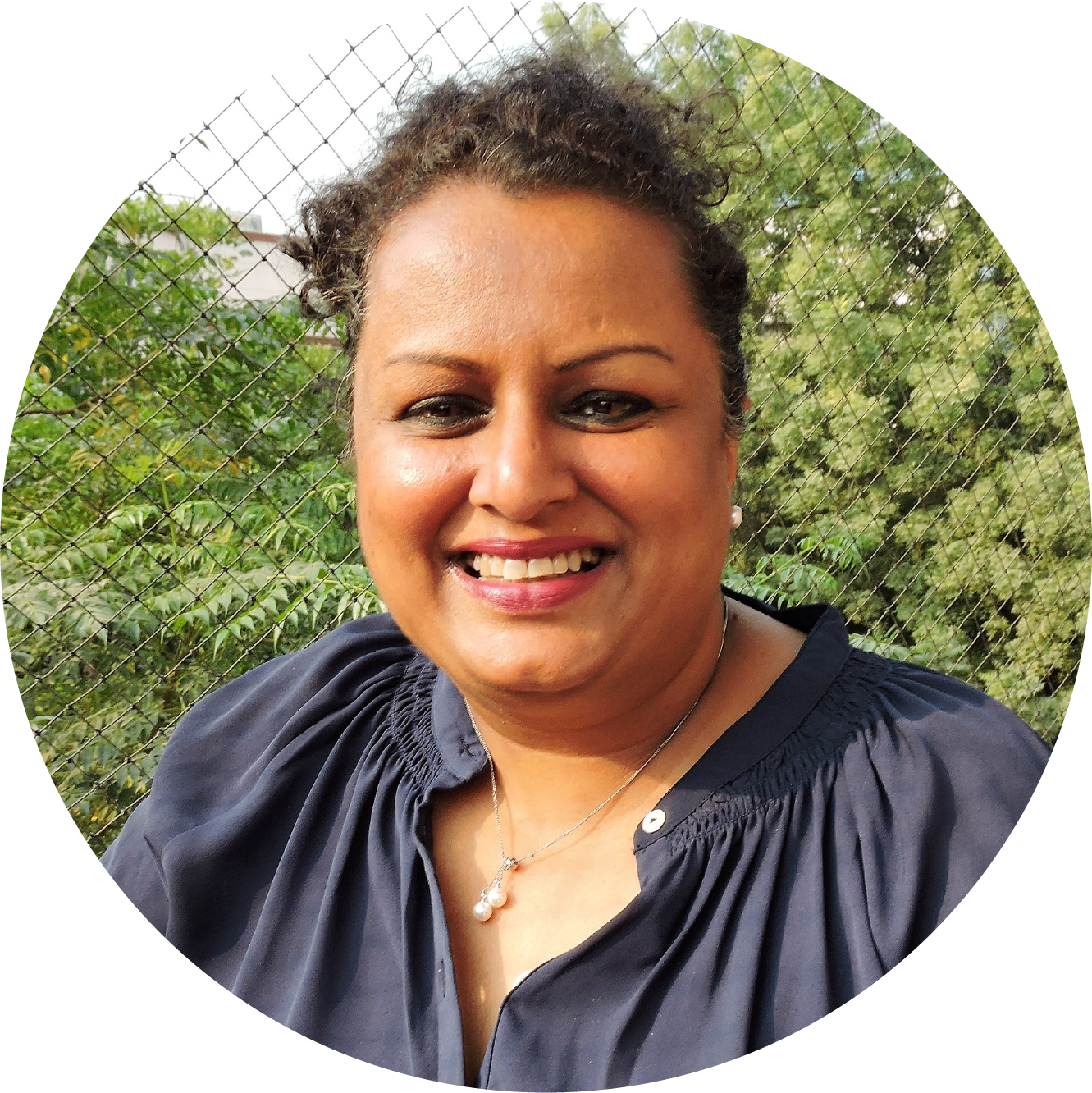
National Campaign on Dalit Human Rights (NCDHR)-DAAA
Beena J Pallical is a Dalit women leader and currently General Secretary, National Campaign on Dalit Human Rights (NCDHR)-DAAA. Over the last eleven years she is with the NCDHR working on Dalit Economic Rights. She has been passionately working towards policy changes within Central and State governments towards the marginalised communities (Dalits & Tribals) and been demanding that Dalit Women be included in policy formulation. Her main focus continues to be on Economic Justice and specifically looking at Gender Equity. She also works around targeted budgets, fiscal accountability and governance. Her focus the last 5 years has been on enabling youth to access their right to education, ensuring that the budgets allocated for them is effectively implemented. Through this campaign across 10 states, many students have been able to get scholarships and complete their education. She also heads the Asia Dalit Women’s Economic Empowerment Program that works on empowering Dalit women in South Asia (Sri Lanka, Bangladesh, Nepal, and India) which is part of the Asia Dalit Rights Forum.
A large part of her work is focused on the UN mechanisms. She has worked closely with both OHCHR at Geneva and the HLPF at NY. She has been involved in the sustainable development goals since 2015 and the inclusion of voices of the marginalized, even taking this agenda to the High-level political forum in NY. She has also been looking at how finances can be better managed to ensure that the SDGs can be achieved specifically from the perspective of the marginalised. She has worked with all the various mechanisms and has represented the Dalit Women’s rights at the UN platforms. She has contributed to the overall work of Dalit Rights in NCDHR and participated in several national and international seminars raising the voice of Dalits and Adivasis and advocating stronger policy measures with effective implementation.
Carla F. Fredericks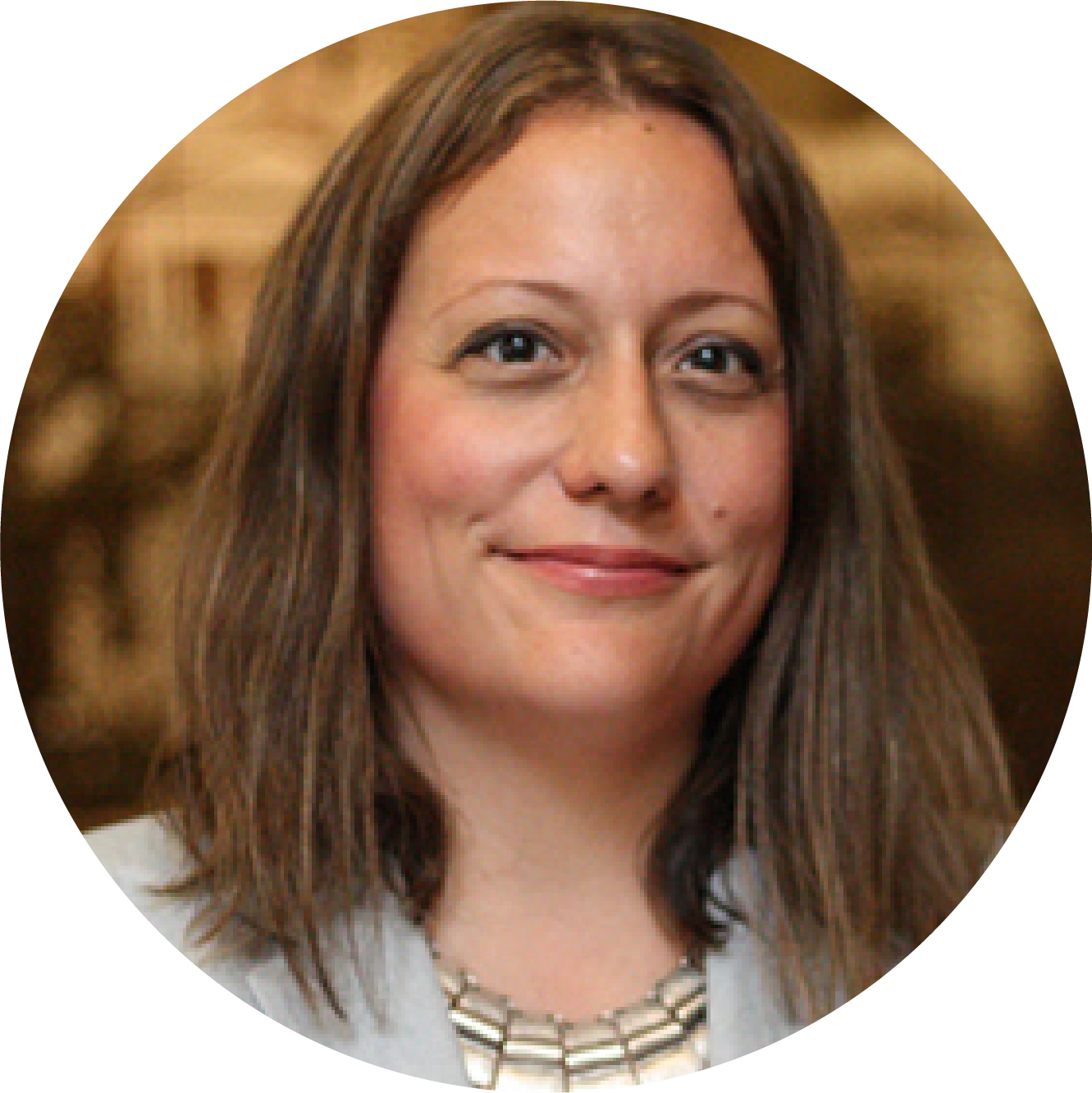
The Christensen Fund
Carla F. Fredericks joined The Christensen Fund in January, 2021. Ms. Fredericks is a seasoned leader in sustainable economic development, human rights, business and finance, Indigenous Peoples law, and federal Indian law.
Ms. Fredericks’ core work has focused on realization of Indigenous Peoples human rights. She has served in several capacities, including providing core support to the UN Special Rapporteur on Rights of Indigenous Peoples for the entirety of her two terms, serving as counsel to the Standing Rock Sioux Tribe in bringing their opposition to the Dakota Access Pipeline to international financial institutions, assisting the Maya peoples of Southern Belize in implementing the affirmation of their land rights, and developing a model for Indigenous-driven consent processes and remedy.
As a faculty member of the University of Colorado Law School, Ms. Fredericks reconstituted First Peoples Worldwide in 2017, homing the Indigenous rights NGO at CU as an interdisciplinary cross-campus program that engages Indigenous Peoples, investors, companies, financial institutions and policy makers to promote implementation of Indigenous rights consonant with the United Nations Declaration on the Rights of Indigenous Peoples (UNDRIP).
She has deep experience as an expert and innovator in the fields of finance and human rights. With First Peoples Worldwide she created a model for a Private Equity Fund that supports sustainable resource development and entrepreneurship in Indian Country, amplified perspectives of Indigenous Peoples during the UN treaty body sessions and Universal Periodic Reviews, and supported the Gwich’in people in protecting their lifeways from extractive industry development in the Arctic.
Through her long affiliation with the Investors & Indigenous Peoples Working Group, Ms. Fredericks has advocated full integration of human rights into the capital markets and facilitated improvements to environmental and social risk management frameworks, including the Equator Principles. In 2020, she led the organizing of investors representing $630 billion AUM that helped to achieve the Washington Football Team name change.
She has authored and co-authored numerous studies and papers for various law reviews and policy journals including, Operationalizing FPIC; Social Cost and Material Loss: The Dakota Access Pipeline; and Responsible Resource Development and Prevention of Sex Trafficking: Safeguarding Native Women and Children on the Fort Berthold Reservation. Her chapter “Mapping the Sustainable Development Goals onto Indian Nations” appeared in Creating Private Sector Economies in Native America: Sustainable Development through Entrepreneurship (Cambridge University Press, 2019), and her forthcoming piece, The (Indigenous) Case for Shareholder Primacy, will be published by the Harvard Law Review Forum in 2021.
Ms. Fredericks has significant practice experience in litigation and was previously a partner at Milberg LLP in New York, where she also founded Milberg’s Native American practice and directed the firm’s civil/human rights litigation. As Director of the American Indian Law Clinic at Colorado Law, Fredericks led a year-long clinic in which students have the opportunity to represent American Indian tribes, designed to ready students for the complexities of general counsel work.
Ms. Fredericks is a graduate of the University of Colorado and Columbia Law School. She is Chair of the Board of Trustees for the Mashantucket Pequot (Western) Endowment Trust, and is a member of the Indigenous Peoples Advisory Group to the Decolonizing Wealth Project. She is a proud, enrolled citizen of the Mandan, Hidatsa, and Arikara Nation of North Dakota.
Chanda Thapa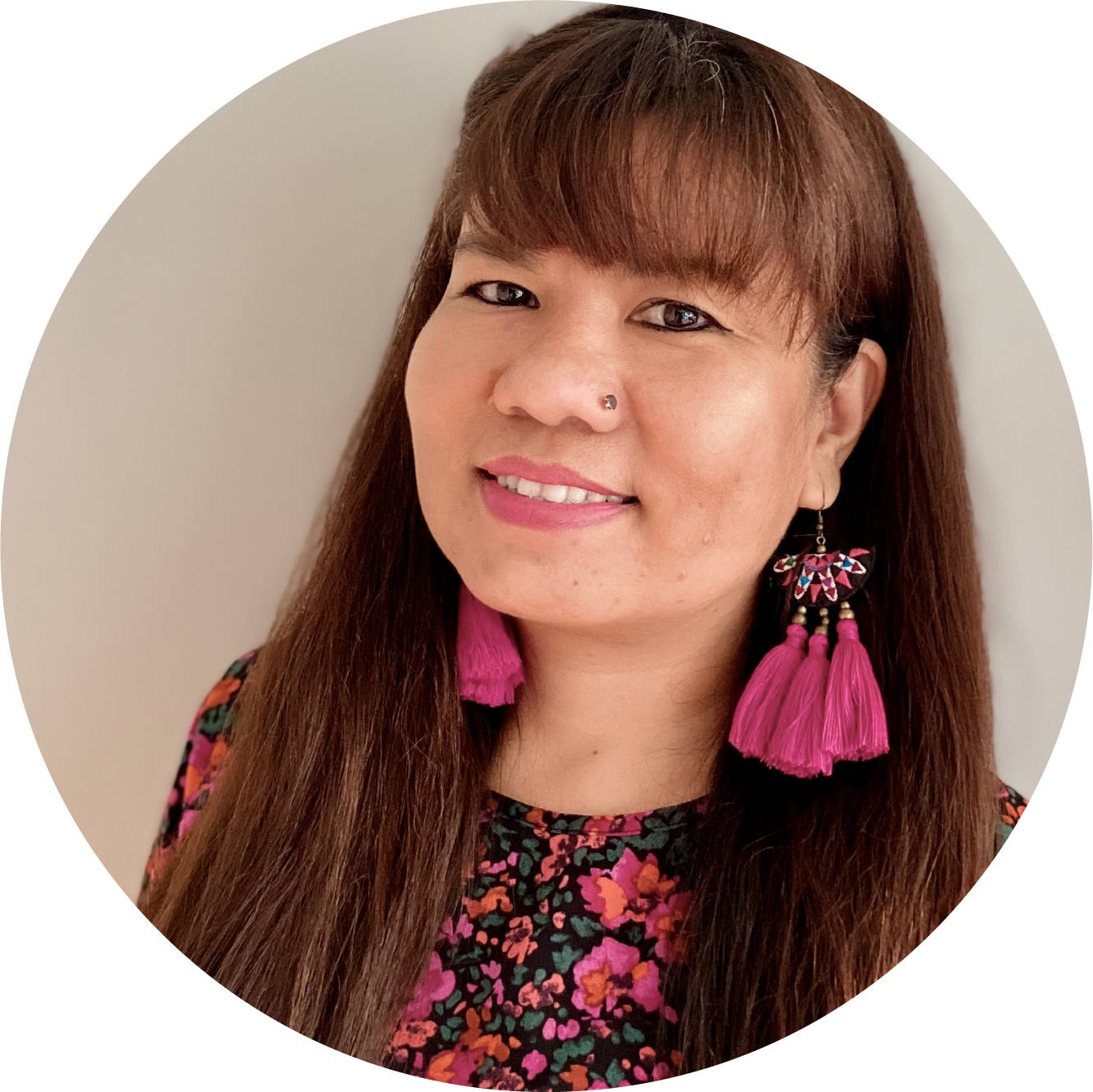
International Funders for Indigenous People
Chanda Thapa has experience of more than a decade in multiple fields, including Indigenous People’s rights, gender equality, and peacebuilding, in Nepal and Asia. Prior to IFIP, Chanda worked with Asia Indigenous Peoples Pact (AIPP) based in Thailand as Deputy Secretary-General (DSG) from 2017-2020 and Regional Indigenous Women Program Coordinator 2014-2016. While working with AIPP, Chanda played a key role in institutional strengthening and movement building for the organization including establishing and strengthening Indigenous Women and Youth Networks in Asia. Prior to joining AIPP, she worked at Sankalpa– an alliance of 10 issue-based women’s organizations in Nepal– as Program Manager. Chanda holds Master’s Degrees in Rural Development and Development Studies from Tribhuvan University, Nepal, and the Erasmus University of Rotterdam, the Netherlands, respectively. Chanda belongs to Magar Indigenous Peoples from Nepal. She loves traveling and cooking in her leisure time.
Elvira Rumkabu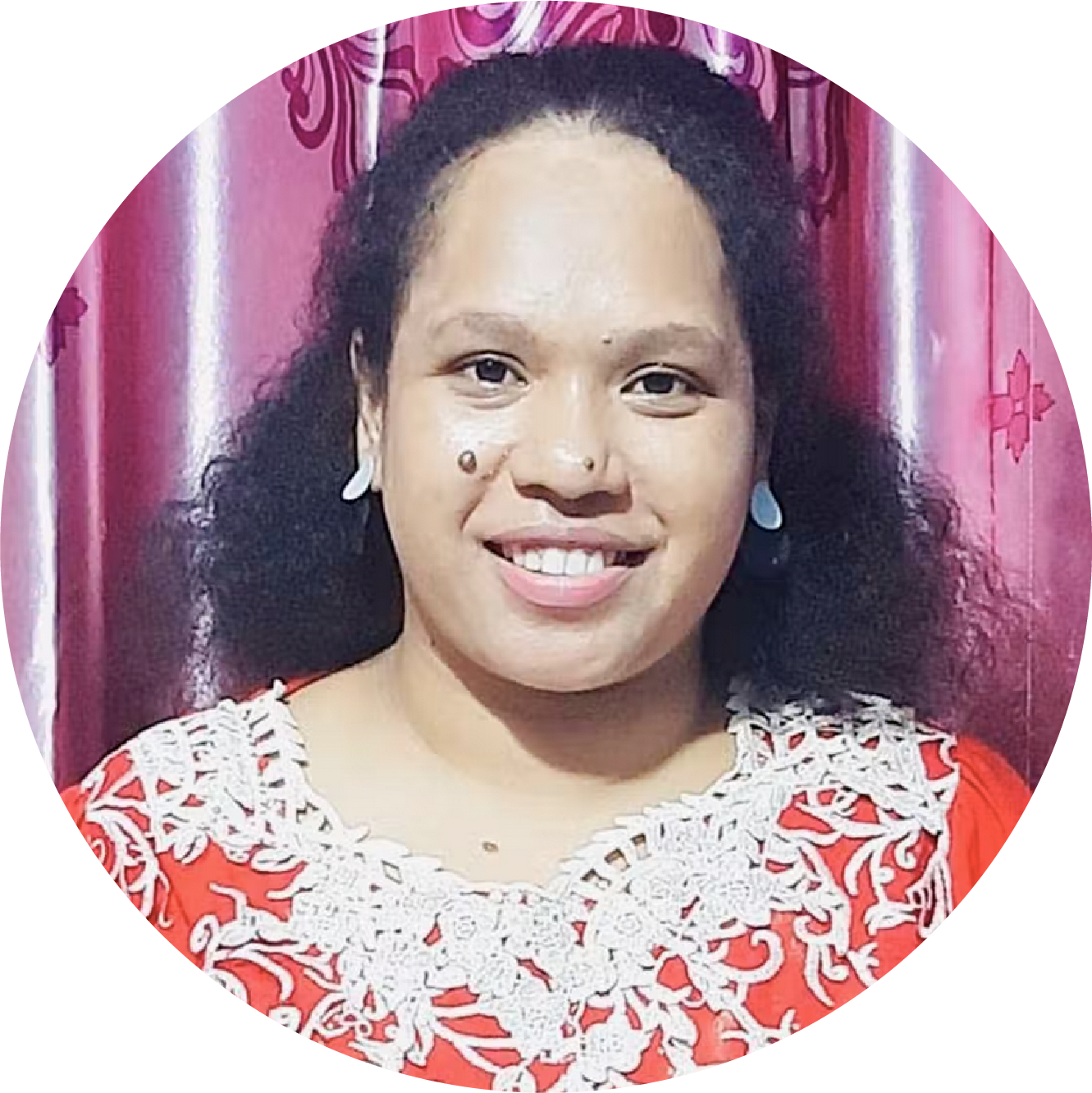
University of Cenderawasih
Elvira Rumkabu is an indigenous scholar-activist based in Jayapura, West Papua. She completed her Master’s Degree at the Australian National University. Her areas of expertise are conflict resolution, peace studies, and Papuan politics. Elvira is a member of the Academics Forum for Papua Peace (FAPD), a forum established by Indonesian lecturers to initiate conflict resolution and peacebuilding in Papua.
She is actively involved in the Peaceful Papua Lobbying Team, initiated by the Democratic Alliance for Papua (ALDP). Elvira has written about issues relating to the conflict in Papua in a number of publications. She has also spoken about conflict resolution in Papua, racism and marginalization and women, peace, and security in national and international forums.
Ioanida Costache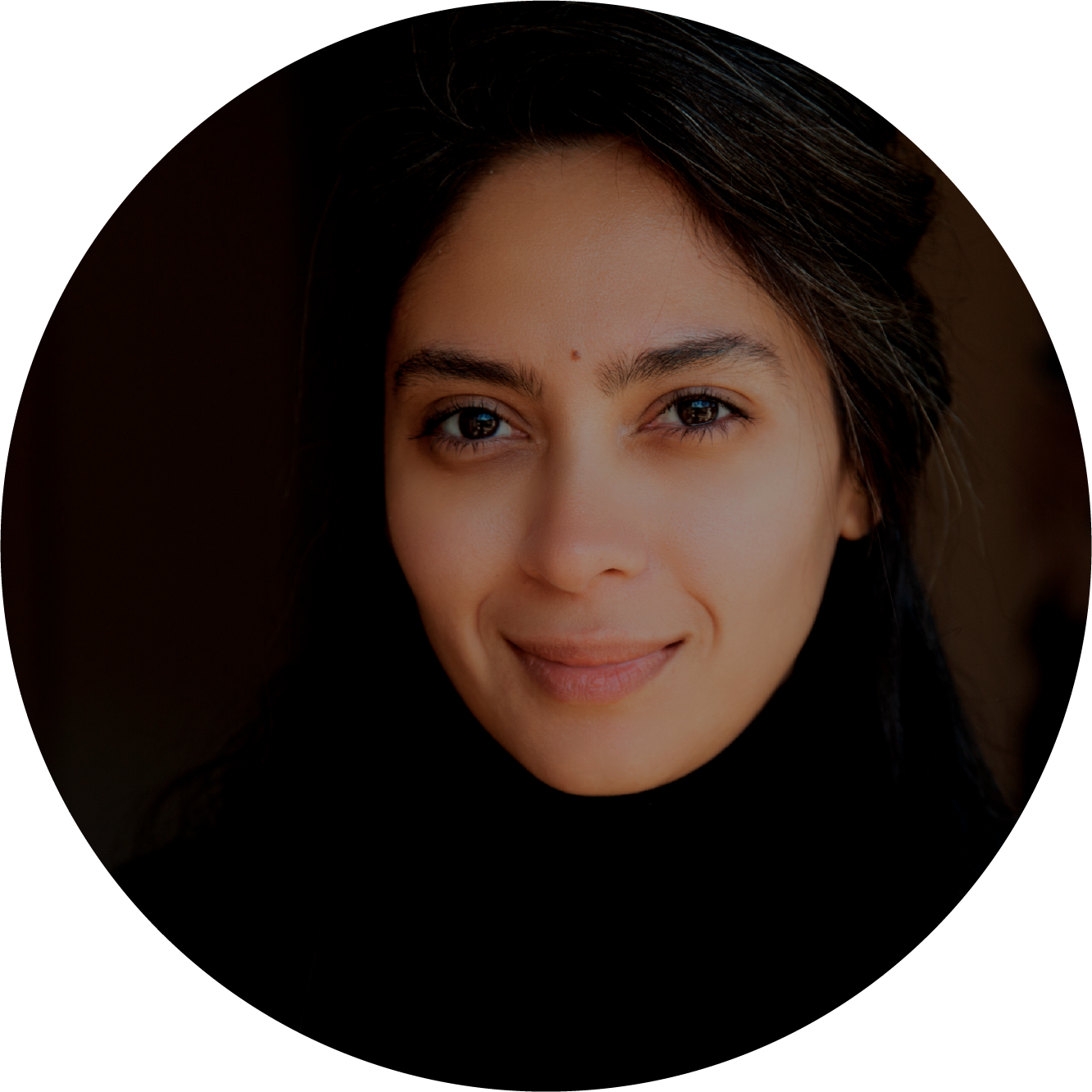
U.S. Fulbright Fellow to Romania
Dr. Ioanida Costache is an ethnomusicologist, activist, violinist, and filmmaker. She earned her Ph.D. at Stanford University. Her research explores issues of race and ethnicity, performance/construction of identity, cultural memory, trauma, and history as they intersect in Romani musico-oral traditions. Her research has been supported by a number of grants and fellowships including two Fulbright Grants, the Gerald J. Lieberman Fellowship from Stanford and a Dissertation Completion Fellowship from the Council of European Studies. She had held visiting fellowships at the United States Holocaust Memorial Museum and the USC Shoah Foundation. Her writing has been published in Critical Romani Studies, Bridge Magazine, Baricade and Decat o Revista.
Jesenia Santana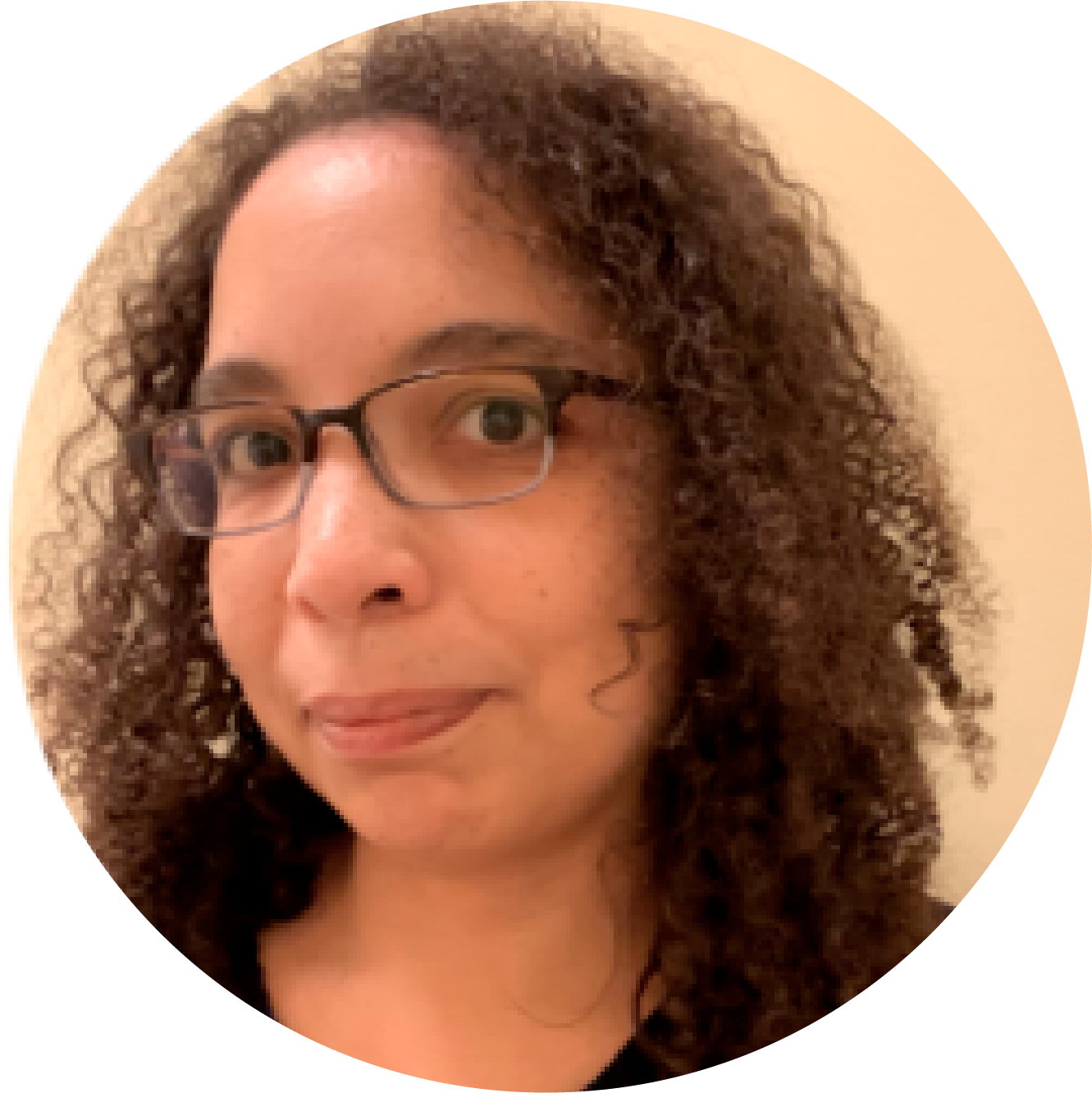
Solidaire
Jesenia (she/her/ella) has over 15 years of experience dedicated to intersectional liberatory movements centering racial and gender justice. She is currently the Senior Resource Strategist at Solidaire Network where she works to mobilize resources for and build trusted relationships with movements advancing gender, racial, and climate justice. Prior to Solidaire, she held the role of Program Officer for NoVo Foundation’s Initiative to End Violence Against Girls and Women, where she led the United States and Global South movement-building portfolios and oversaw the foundation’s accompaniment and capacity strengthening program.
Previously, Jesenia has served as a tenant rights advocate; led projects advancing the rights of criminalized survivors of violence in New York City; and co-designed narrative power building campaigns alongside currently and formerly incarcerated women. As a member-organizer with the Coalition for Women Prisoners, she contributed to the successful campaign to pass the Domestic Violence Survivors Justice Act.
Jesenia brings with her the values of collaboration and solidarity in her work towards collective liberation. She holds a Bachelor of Arts from Wesleyan University and a Master of International Affairs, with a concentration in Human Rights, from Columbia University. She currently serves on the board of Grassroots International. A daughter of immigrants from the Dominican Republic, she was born and raised in Harlem and makes her home in Brooklyn, NY with her family.
Leyla Zuleikha Makhmudova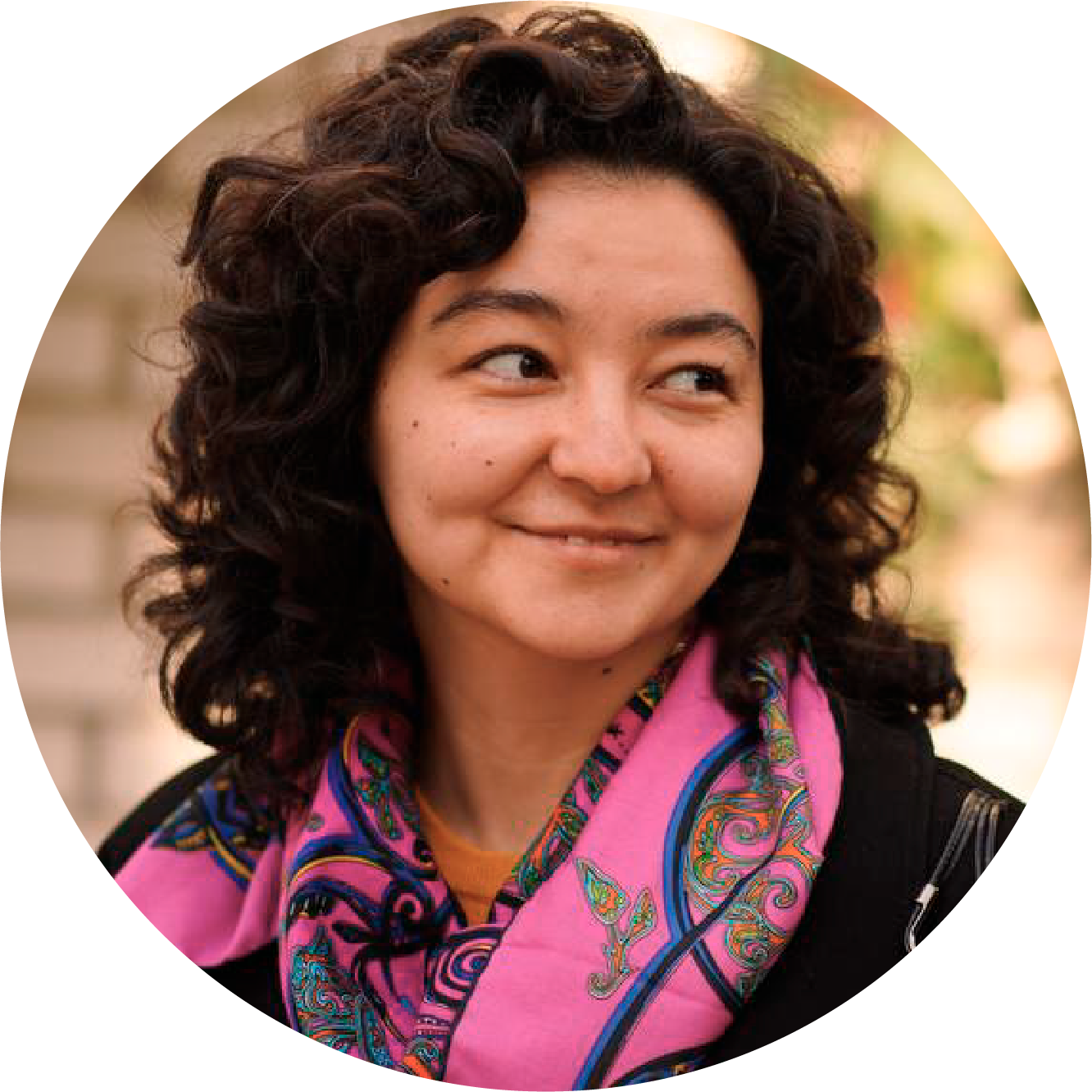
FemAgora Central Asia Foundation
Leyla Zuleikha Makhmudova is a Central Asian feminist organizer and gender expert with ten years in movement building and social entrepreneurship, and four years in professional consulting, advising, and expert training for local non-profits, social enterprises, international organizations, and financial institutions such as Eurasia Foundation of Central Asia, Young Feminist Fund Frida, US Embassy, UN Women, MediaNet International Centre for Journalism, International Exchange and Research Board (IREX), European Bank for Reconstruction and Development, World Bank. She is the founder of FemAgora Public Foundation in Kazakhstan and producer of its flagship feminist festival FemAgora Central Asia. Kazakhstan Forbes recognized her as 30 under 30 in 2020. Leyla holds a BA degree in Education from Suleyman Demirel University in Kazakhstan. More about Leyla’s experiences and reflections here.
Luam Kidane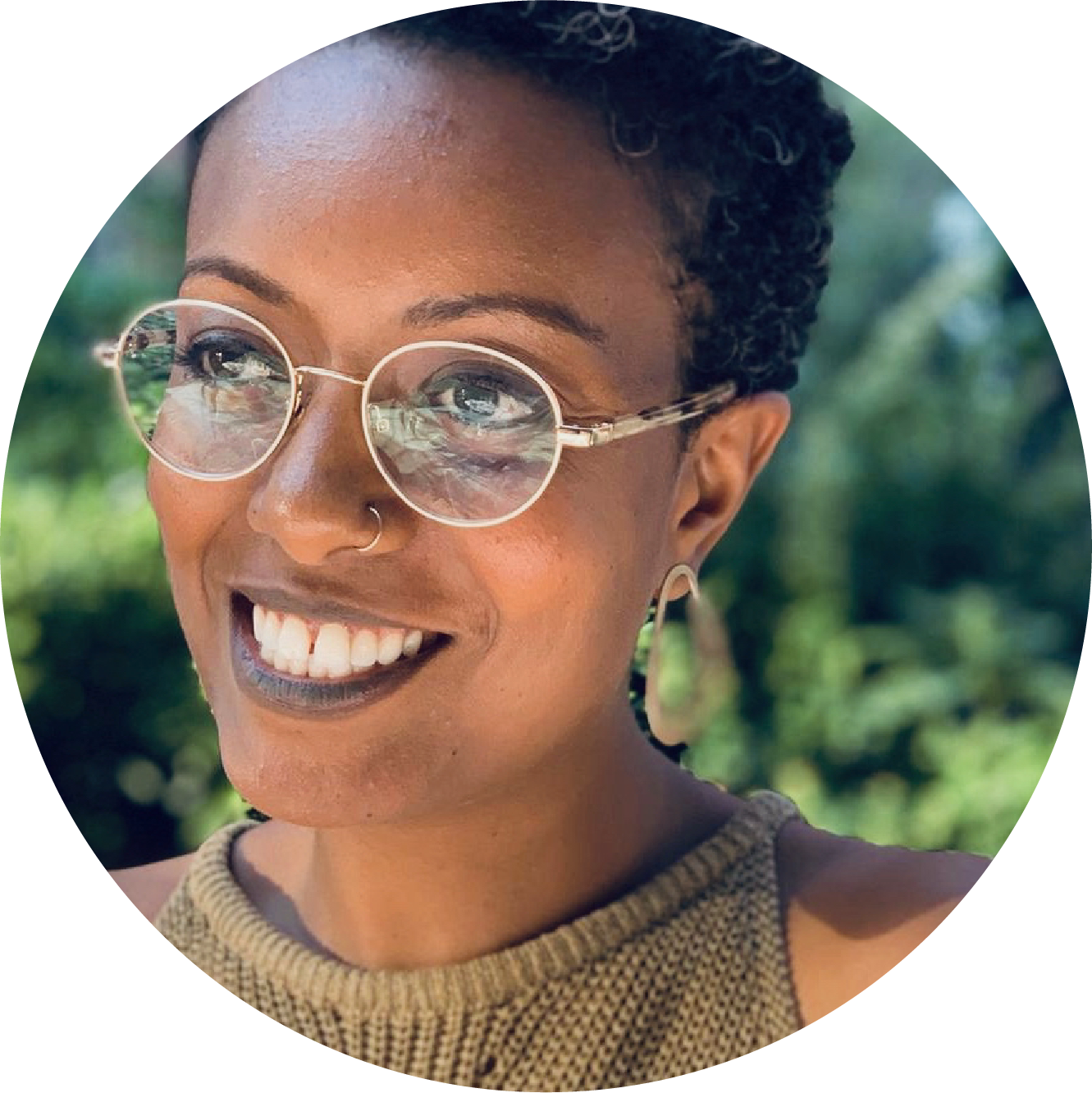
Thousand Currents
An African of Eritrean origin, Luam Kidane’s research, writing, and curatorial work examines movement building at the intersections of Indigenous governance models, cultural production, and articulations of self-determination. She has worked as a researcher and strategist on food sovereignty, political economy, climate, gender, sexuality, and cultural production. Luam is currently the Director of Global Programs at Thousand Currents.
Michelle Reddy
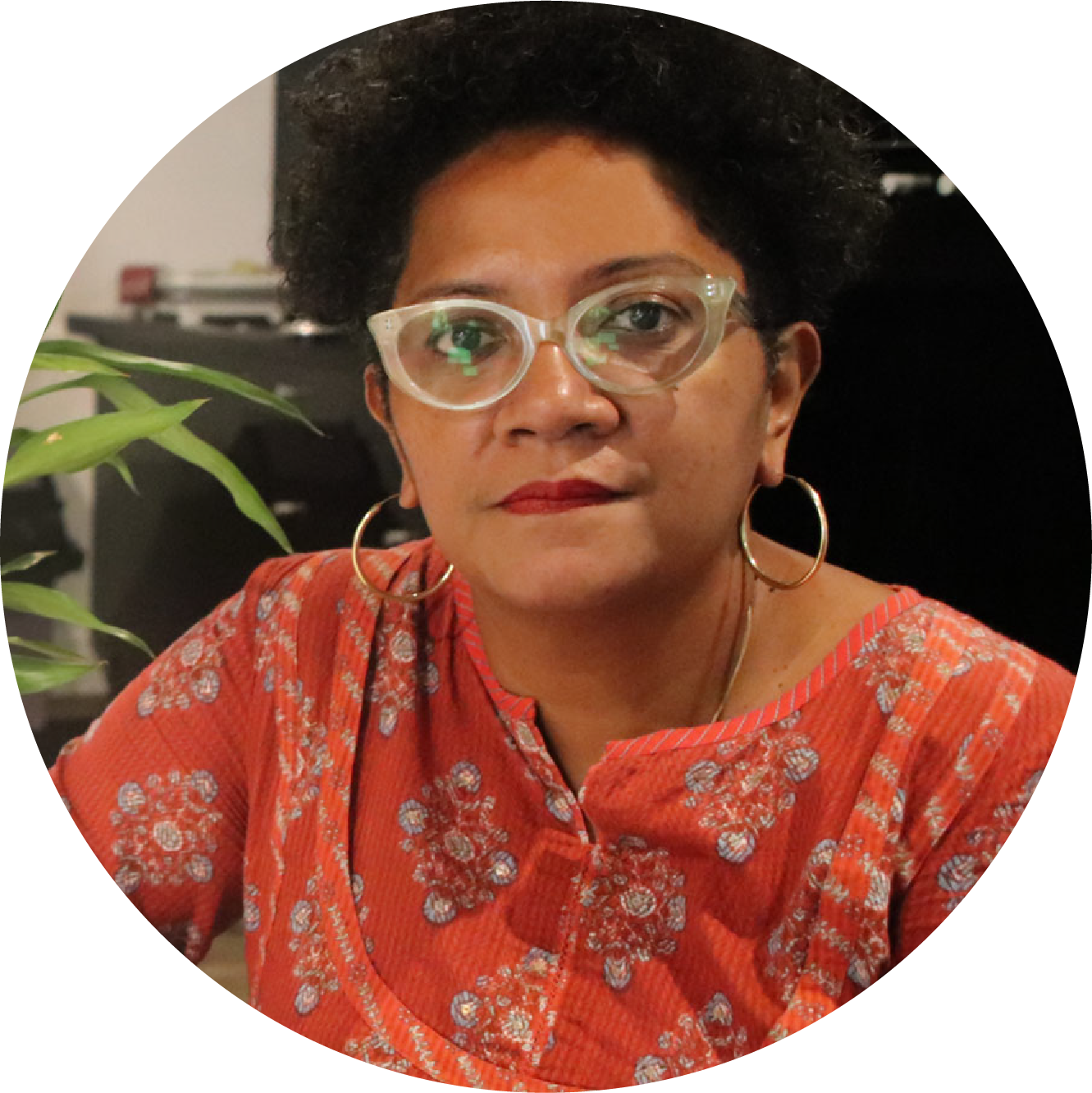
Pacific Feminist Fund
Michelle Reddy is a queer feminist who has been part of women’s movement in Fiji and the Pacific. Michelle led the establishment of the first national women’s fund in Fiji and the Pacific called the Women’s Fund Fiji from 2017 to March 2022. As a Consultant Co-Lead, Michelle is currently working towards the establishment of the Pacific Feminist Fund, which will be the first regional women’s fund in the Pacific.
Michelle serves as an advisory member on the Equality Fund’s Catalyse Program, a Co-Coordinator for Prospera Asia and Pacific Chapter of Women’s Funds and United Nations Pacific Insurance and Climate Adaptation Programme under the UN Capital Development Fund.
A lover of sarees and snail mail Michelle is based in Suva, Fiji Islands.
Pontso Mafethe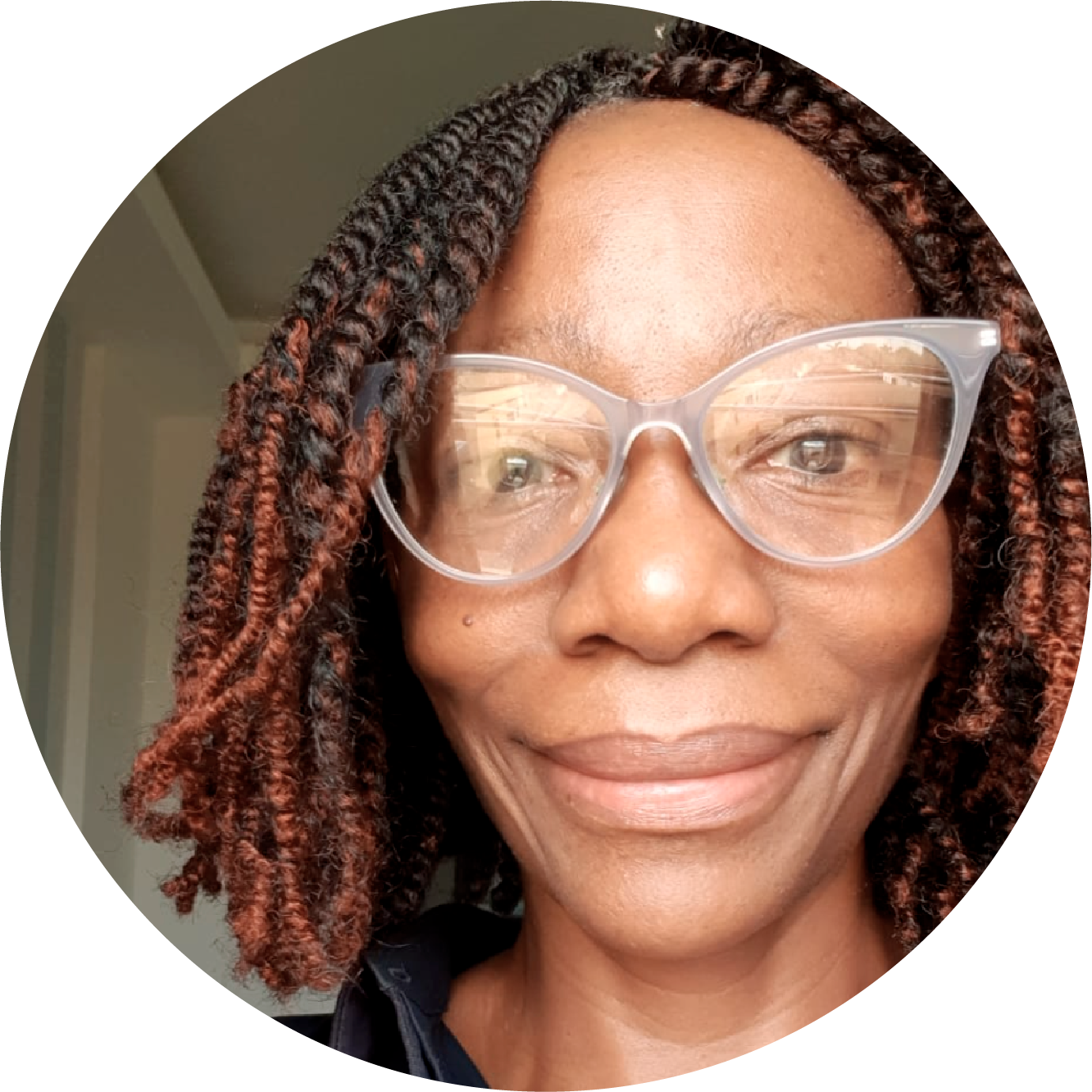
African Women’s Development Fund (AWDF)
Pontso has spent over 25 years working on social justice, particularly gender justice; themes and contexts that have both impacted and inspired her personally and professionally. She is the Director of Programmes at the African Women’s Development Fund, a feminist and champion for the leading contribution of African feminists and their organisations on the continent and in the Diaspora.
Her experience spans work advocating for equitable power and money relations between indigenous led organisations in the globalized south and northern development actors, addressing violence against women, women’s leadership, and work addressing racial justice in the international development sector. Pontso’s career has included roles with Action Aid, Comic Relief, International Planned Parenthood Federation, and the International Union for the Conservation of Nature. She has also worked as a freelance consultant and co-authored a BOND report on “Racism, Power and Truth: Experiences of People of Colour In Development.
Pontso has been one of the BBC 100 Women, a member of Steering Committees for The Red Umbrella Fund and The Girl Generation, and is a Board member of EMpower – The Emerging Markets Foundation, Board Chair for Make Every Woman Count, and an Advisory Circle member for the Healing Solidarity Collective. Outside of work, Pontso enjoys amapiano music, pretending to garden, and learning to fly helicopters.
Prachi Patankar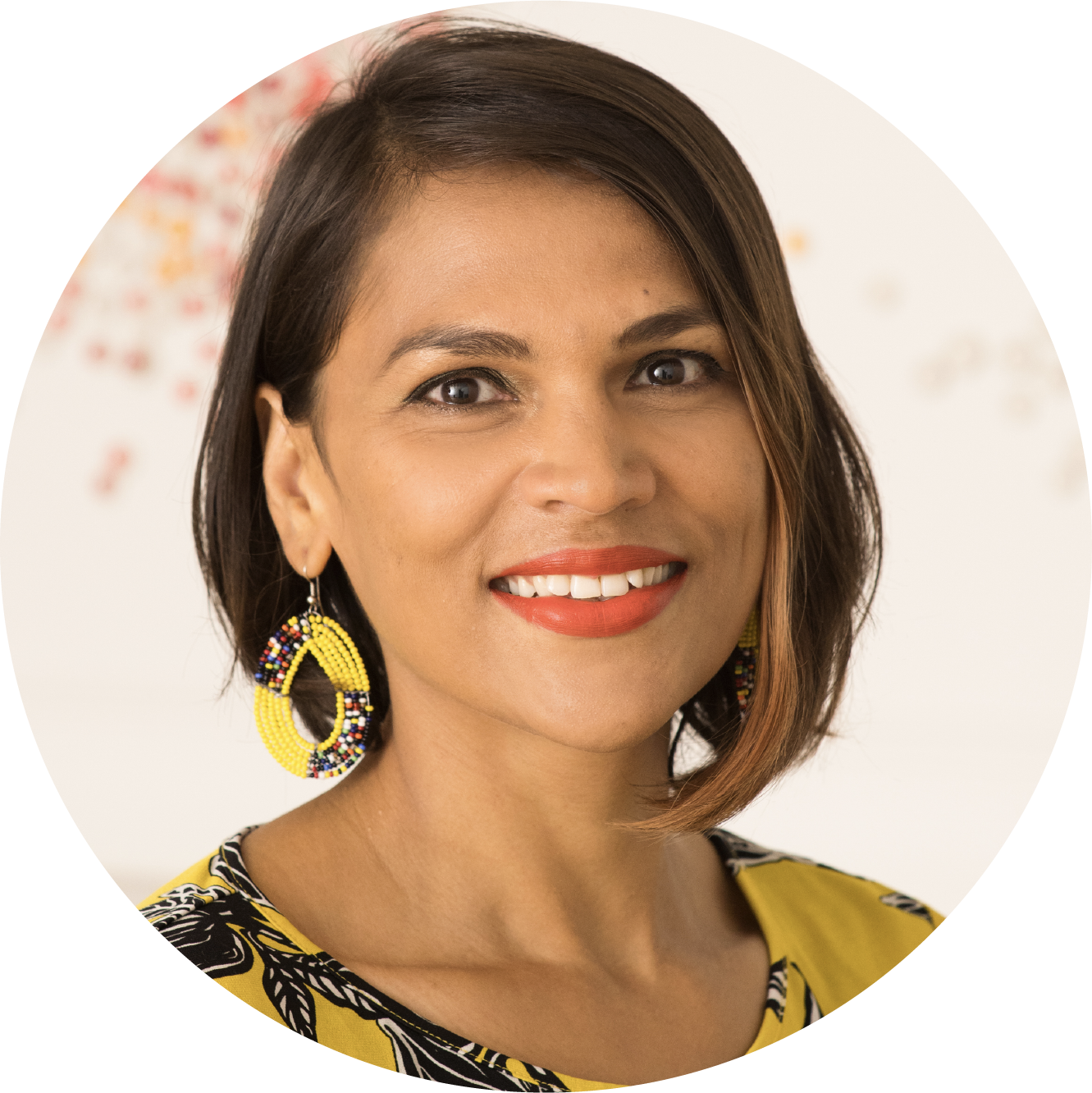
Foundation for a Just Society
Prachi Patankar is the Program Officer, South and Southeast Asia, at Foundation for a Just Society. Born and raised in rural India, Prachi was raised by a freedom-fighter grandmother and parents deeply involved in anti-caste, feminist, and peasant movements. Over two decades in New York City, she has been an activist, educator, grantmaker, and writer involved in social movements which link the local and the global, police brutality and war, migration and militarization, race and caste, women of color feminism and global gender justice. Prachi most recently served as the Program Director for social justice at the J.M. Kaplan Fund, leading grantmaking for criminal justice reform, immigrant rights, and locally-led work in Brownsville, Brooklyn. Prior to that, Prachi was the Senior Program Officer at Brooklyn Community Foundation, where she helped create and implement grant programs through a racial justice lens. Prachi currently serves on the Advisory Board for Grantmakers for Girls of Color. Throughout the last two decades, she has been involved in organizing to link social justice movements between the United States and Asia. Prachi believes in the vital power of intersectional and international visions and strategies, which resonate across Dalit rights and Black lives, migrant justice, and gender justice, to build bottom-up change from the local to the global.
Tynesha McHarris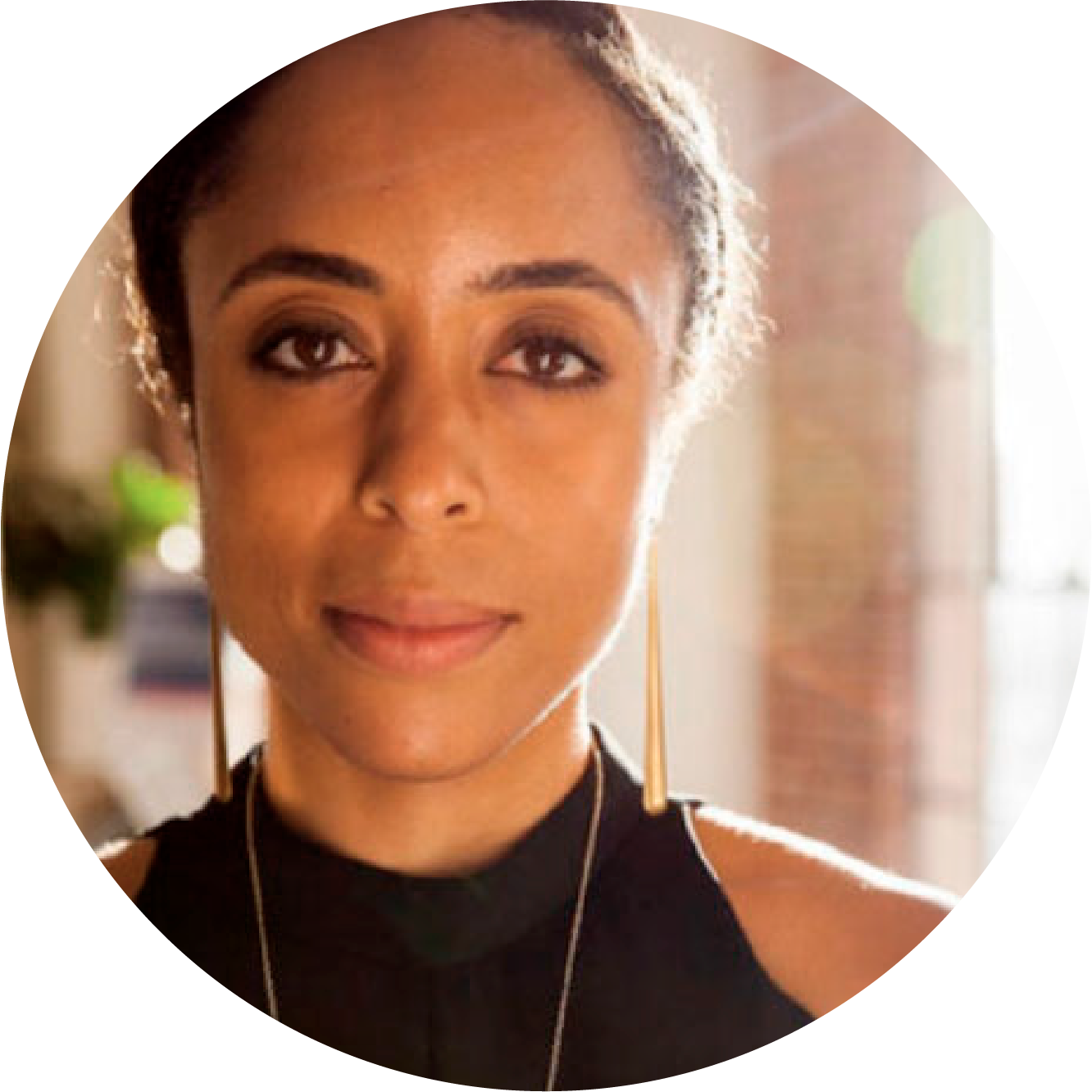
Black Feminist Fund
Tynesha’s philanthropic roots are in her early work, leading programs for young people. She has worked closely with young people who have experienced criminalization and incarceration, as well as dutiful work for survivors of gender-based violence.
She is a graduate of Rutgers University, and has completed post-graduate training from the Columbia Business School’s Social Enterprise Executive Education Program, as well as Robert Wood Johnson Foundation and Centre for Creative Leadership’s Executive Education Program.
Tynesha is respofnsible for designing NoVo Foundation’s portfolio for girls of colour in the United States, a 90 million-dollar investment, and the first of its kind in the sector. She has served on the board of Grantmakers for Girls of Colour, Just Beginnings Collaborative, and Funders or Justice. She is also the Principal at Black Harvest, a Black feminist consulting firm partnering with social movement leaders, donors of wealth and institutional philanthropy to bolster work advancing racial, gender and youth justice.
Featured Illustration Credit: The Big Fat Bao (Instagram: @thebigfatbao)
